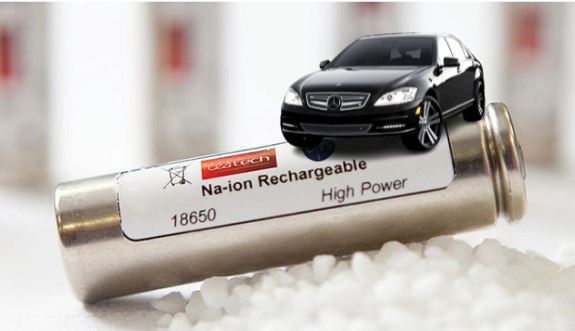As the world moves away from fossil fuels, it is becoming exceedingly clear that the future of the world depends on Electric Vehicles (EV). However, the EV market is powered entirely by lithium-ion batteries (LiBs) and presently, China manufactures two-thirds of the world’s lithium-ion batteries. Unfortunately, owing to the lack of Lithium reserves, Indian EV manufacturers are forced to import cells and battery packs from China.
Moreover, Beijing is also the biggest producer of Graphite – a key raw material for manufacturing LiB anodes. China has high concentrations of Lithium, but it prefers importing 80 per cent of the white metal so that it can store up to its reserves for future needs and to be used as leverage.
Thus, it seems rather prudent that companies and manufacturers look for alternatives. And that’s where Sodium-ion batteries come into play. Unlike Lithium, Sodium is a common element available in plenty of amounts and across the world.
Sodium is available easily and is distributed equitably
Sodium is usually mined from soda ash and can be found anywhere. It is the seventh most abundant material on planet Earth and is available far more commonly than Lithium. Meaning, countries like India can jump into the EV sector with more faith.
Add to the fact that lithium-ion batteries are recycled at a rate below 5 per cent, which is not an encouraging number for the sustainability of the environment.
These batteries also contain metals like cobalt, nickel, and manganese. While these metals aren’t as problematic as lead, they are considered toxic heavy metals.
If India wants to dominate the EV space, it needs to reduce its dependence on Lithium batteries. Done right, Sodium-ion batteries could lead to widespread adoption in a market largely dependent on subsidies and where EV sales are still a fraction of all cars.
Reliance buys a sodium-ion battery developing startup
In a related attempt, Reliance Industries recently acquired a UK-based start-up named Faradion, specializing in developing sodium-ion batteries in a deal worth $135 million. Reliance will invest a further $35 million in Faradion to accelerate the commercialization of its products, including batteries for electric vehicles.
Mukesh Ambani, Reliance’s chairman remarked after the new acquiring, “We will work with Faradion management and accelerate its plans to commercialize the technology through building integrated and end-to-end Giga scale manufacturing in India,”
The Sodium-ion batteries offer better performance and can operate at a wider temperature range. They work much more efficiently in cold environments, compared to lithium-ion batteries.
However, a caveat, Sodium-ion batteries and their energy density of about 150 W⋅h/kg are substantially lower than that of the latest lithium-ion batteries. The Sodium-ion batteries may not be giving the same output as their Lithium-ion counterparts but with the technology progressing at a rapid pace, it’s only a matter of time before the technology is perfected.
The planet may run out of Lithium reserves
A typical EV can have about 5,000 battery cells. Building from there, a single EV has roughly 10 kilograms of lithium in it. Thus, almost a ton of lithium metal is required o build about 90 electric cars. If the technology is to be adopted by millions of cars, the planet will soon run out of Lithium reserves.
If the technology is to be adopted by millions of cars, the planet will soon run out of Lithium reserves. PV Magazine states it could be as soon as 2040, assuming electric cars demand 20 million tons of lithium by then.
Sodium-ion batteries are the future. Their extraction and refining are not as costly as Lithium and they are much safer. The Indian government needs to play smart and bet on the Sodium reserves. If New Delhi manages to do that, the planet will usher into an EV revolution.


























Aluminum ion batteries are a bit farther along and offer potentially better performance than sodium ion batteries. Check out Graphene Manufacturing Group. They’ve already sent prototypes of a coin cell batteries to customers and will have prototypes of a pouch pack for EV use by June. Sky is the limit there